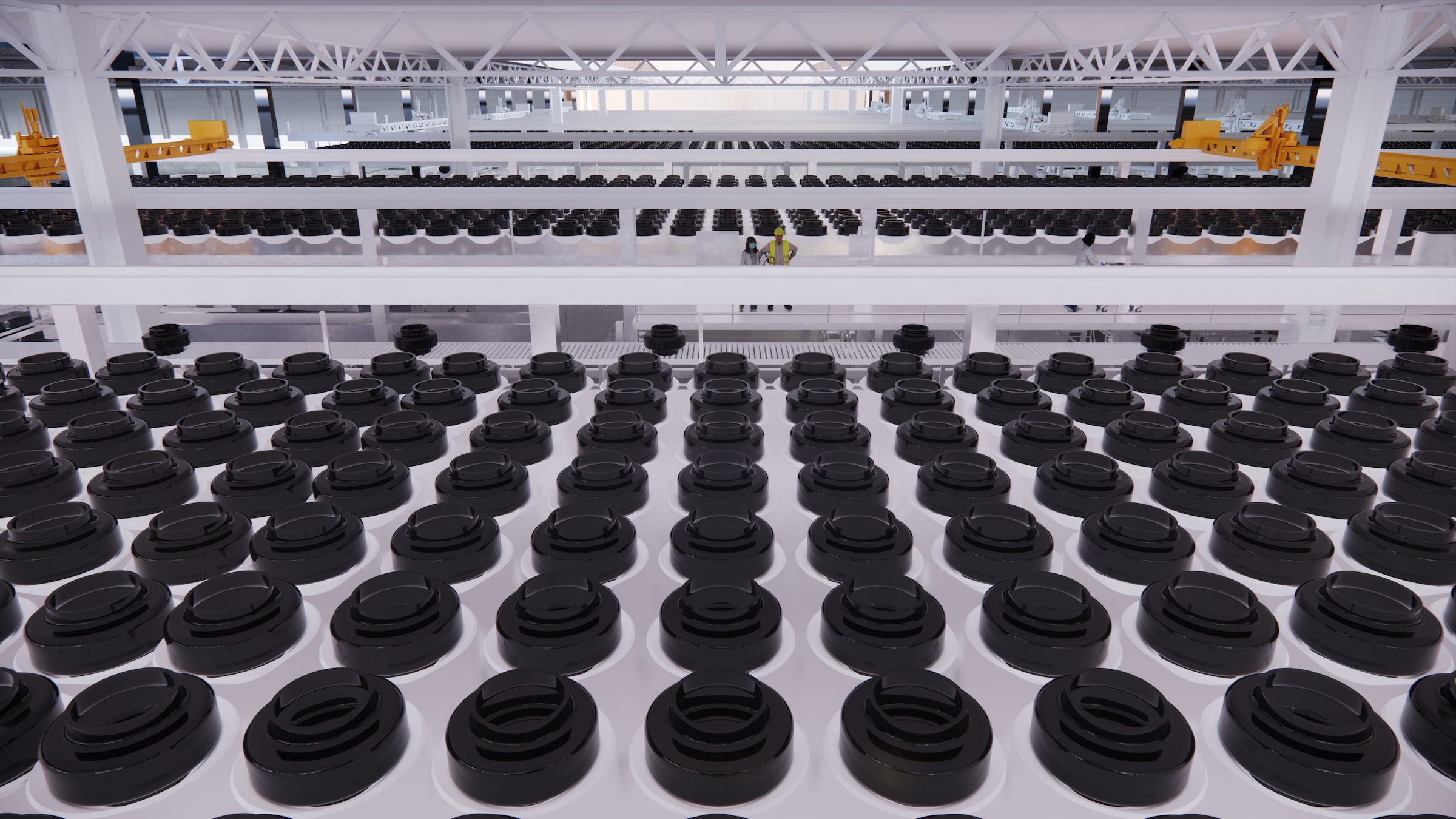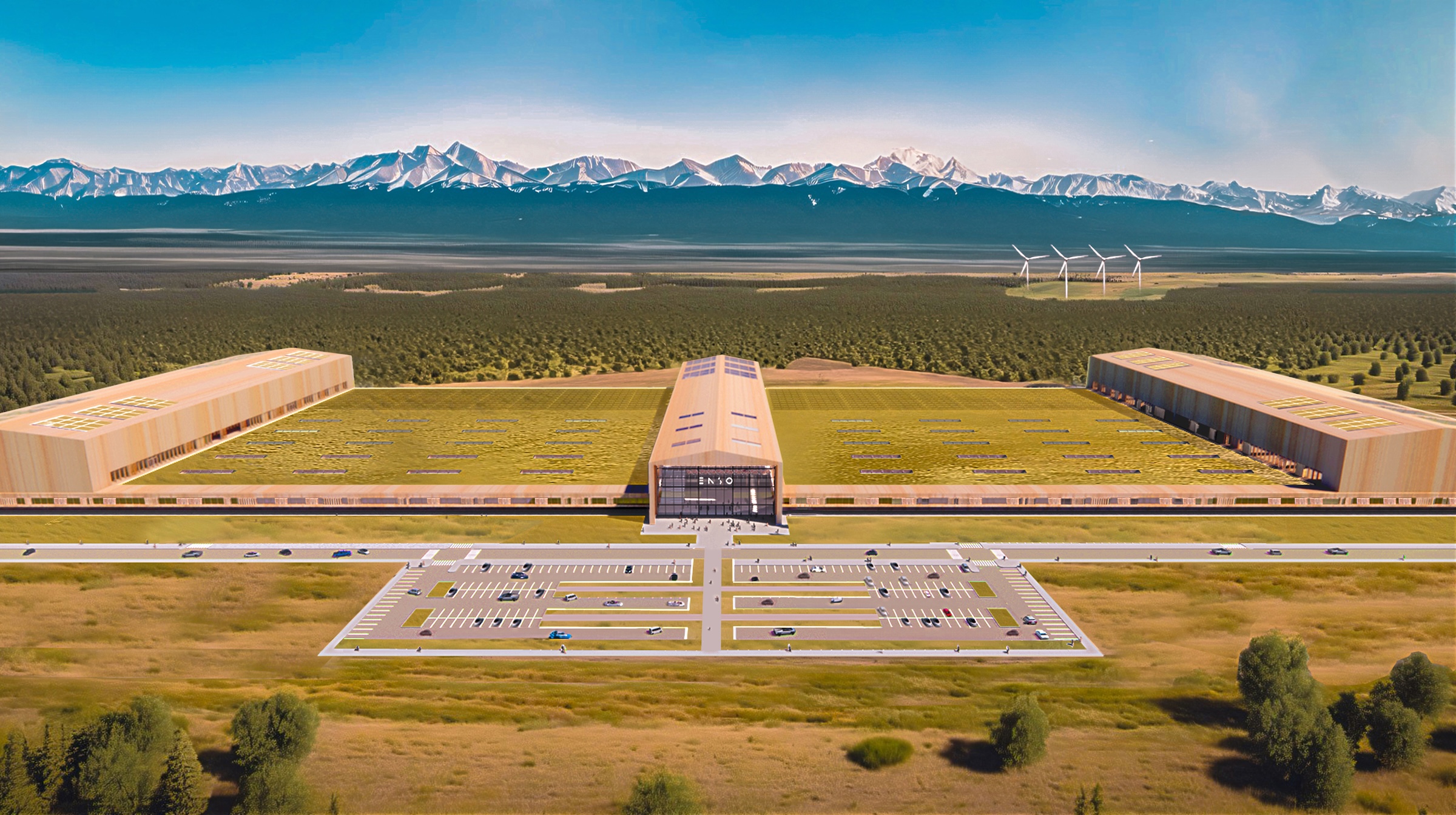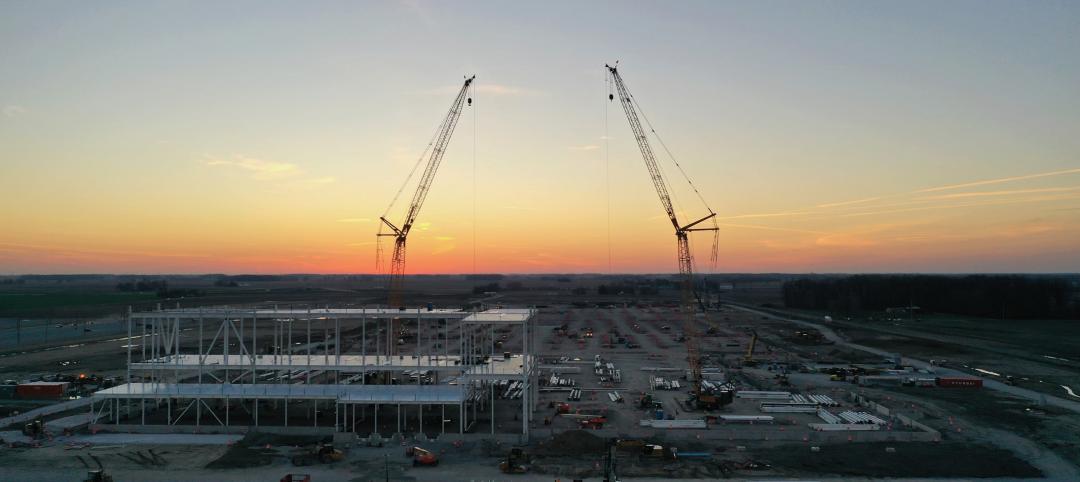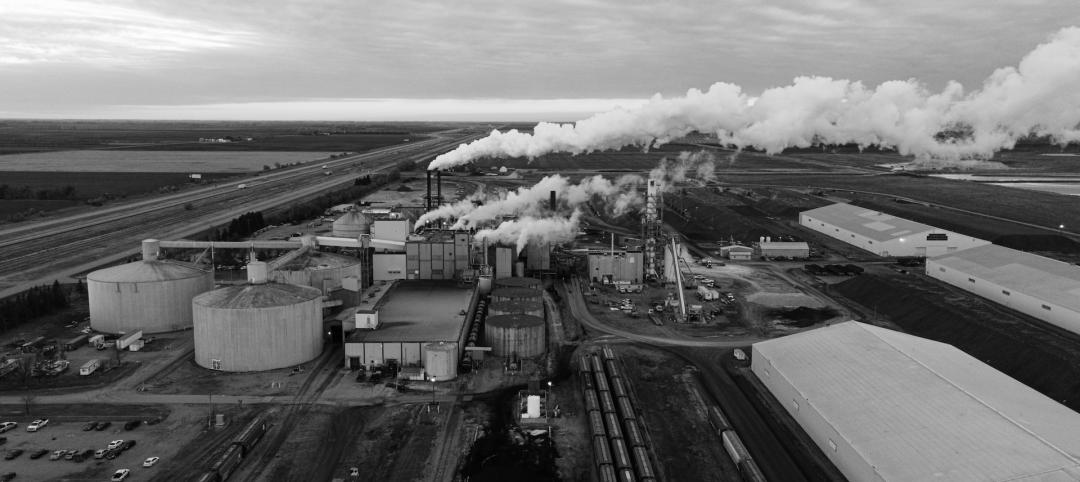ENSO, a U.K.-based company that makes tires for electric vehicles, has announced plans to build the first carbon-neutral tire factory in the U.S.
The $500 million ENSO technology campus will be powered entirely by renewable energy. The first-of-its-kind tire industrial campus aims to be carbon neutral without purchased offsets, using carbon-neutral raw materials and building materials.
In its first phase, the factory will produce five million EV tires annually by 2027 and create 600 jobs. The factory will expand to 2,400 jobs when built out to its full production capacity of 20 million tires, which ENSO says is 8% of the total annual U.S. tire market. To accelerate and scale innovation, the ENSO technology campus will integrate research and development production under one roof.
Most tires sold in the U.S. today are imported, ENSO reports. The factory aims to reduce U.S. reliance on imports and enhance domestic production. Possible factory locations include Colorado, Georgia, Nevada, and Texas, among other states.
“The U.S. is the best place for ENSO to establish its first carbon-neutral tire factory,” ENSO CEO Gunnlaugur Erlendsson said in a press statement. “With strong regulatory support and a significant market opportunity, we are committed to bringing our innovative, low-emission, low-cost tires to American consumers. This factory will make tires more affordable, reduce tire pollution, create great jobs, and drive sustainability in the U.S. tire industry.”
ENSO says it has signed a letter of interest with the Export-Import Bank of the United States to establish the factory in the U.S. Technology partner Rockwell, development firm Arup, and investors 8090 Industries and Galway Sustainable Capital are also supporting the project.
ENSO’s mission is to make EVs more successful and reduce tire pollution, which is responsible for 6 million tons of particulate matter emitted globally, per the statement. The company says its tires increase EV range by 10% and reduce particulate matter emissions by 35%. ENSO plans to phase out all fossil fuel-based raw materials from its products by 2030, replacing them with bio-based renewable and low-carbon alternatives.

Here is the full press release from ENSO:
ENSO, the tire technology company that makes better tires for electric vehicles (EVs), has signed a Letter of Interest (LOI) with the Export-Import Bank of the United States (U.S. EXIM Bank) to establish a groundbreaking carbon-neutral tire factory in America. U.S.-based technology partners Rockwell, global sustainable development firm Arup and US-based investors 8090 Industries and Galway Sustainable Capital, are supporting ENSO.
The first-of-its-kind tire factory will be carbon-neutral without purchased offsets, utilizing carbon-neutral raw materials, building materials and 100% renewable energy. In its first phase, the factory will produce 5 million EV tires by 2027 and create 600 jobs, rising to 2,400 jobs when built out to full production capacity of 20 million tires – 8% of America’s total annual tire market. The ENSO technology campus will integrate research and development with production under one roof to accelerate and scale innovation.
Announced at the SelectUSA Investment Summit in Washington DC, potential factory locations include Colorado, Nevada, Texas, and Georgia, with other states in consideration. The U.S., particularly California, has a significant EV consumer base and is leading efforts to regulate tire efficiency and emissions, making the U.S. the ideal market for ENSO.
ENSO CEO Gunnlaugur Erlendsson said, "The U.S. is the best place for ENSO to establish its first carbon-neutral tire factory. With strong regulatory support and a significant market opportunity, we are committed to bringing our innovative, low-emission, low-cost tires to American consumers. This factory will make tires more affordable, reduce tire pollution, create great jobs and drive sustainability in the U.S. tire industry.”

The U.S. regulatory environment strongly supports ENSO’s move to America. Initiatives like the Inflation Reduction Act have transformed the automotive sector and enabled more ambitious EPA (Environment Protection Act) emissions standards, paving the way for similar advancements in the tire industry. Programs such as the California Energy Commission’s (CEC) Replacement Tire Efficiency Program and the California Environmental Protection Agency’s (CalEPA) efforts to control toxic chemicals such as 6PPD in tires align with ENSO's goals, by setting out minimum efficiency and environmental standards for both new and aftermarket tires.
Tires are critical to keeping America’s economy moving. Without tires, all 275 million vehicles in the U.S. would grind to halt. Currently, the majority of tires sold in the U.S. are imported. This factory will help reduce America’s reliance on imports, enhancing domestic production capabilities. There is a big consumer appetite in the U.S. for ENSO’s tire innovation. Nearly half (47%) of Americans would be more encouraged to buy a set of tires if they were made in the U.S., 46% if they used fewer toxic materials, 43% if they produced fewer emissions, and 41% if they were made from recycled materials.
ENSO’s mission is to make EVs more successful and reduce tire pollution, saving costs for every American. ENSO’s tires already increase EV range by 10% and reduce particulate matter emissions by 35%. By producing fewer, longer-lasting tires with better technology, ENSO aims to cut tire pollution.
Tire pollution is a significant issue, responsible for six million tons of particulate matter emitted globally each year. Tire pollution is a major contributor to ocean microplastic pollution and local air pollution, while tire production is carbon intensive and creates huge amounts of waste at the end of life. ENSO, a finalist in the ‘Clean Our Air’ category of The Earthshot Prize, the prestigious annual environmental award established by Prince William, is leading the way on environmental standards in the tire industry. ENSO is leading efforts to decarbonize the tire industry and is committed to completely phase out all fossil fuel based raw materials from its products by 2030, replacing them with bio-based renewable and low-carbon alternatives.
The U.S. has a major market opportunity to lead the transformation of the tire industry and to incentivize EV adoption. America doesn't make enough tires, and ENSO’s factory will be a major step toward achieving these goals, ensuring economic benefits and environmental sustainability for American consumers. This factory therefore represents a significant investment in setting a new standard for the future of American tire manufacturing.



Related Stories
Giants 400 | Aug 22, 2023
Top 115 Architecture Engineering Firms for 2023
Stantec, HDR, Page, HOK, and Arcadis North America top the rankings of the nation's largest architecture engineering (AE) firms for nonresidential building and multifamily housing work, as reported in Building Design+Construction's 2023 Giants 400 Report.
Giants 400 | Aug 22, 2023
2023 Giants 400 Report: Ranking the nation's largest architecture, engineering, and construction firms
A record 552 AEC firms submitted data for BD+C's 2023 Giants 400 Report. The final report includes 137 rankings across 25 building sectors and specialty categories.
Giants 400 | Aug 22, 2023
Top 175 Architecture Firms for 2023
Gensler, HKS, Perkins&Will, Corgan, and Perkins Eastman top the rankings of the nation's largest architecture firms for nonresidential building and multifamily housing work, as reported in Building Design+Construction's 2023 Giants 400 Report.
Industrial Facilities | Aug 22, 2023
Rising battery demand charges industrial plant construction
Several U.S. factories are being built in partnership with automakers.
Industrial Facilities | Aug 3, 2023
The state of battery manufacturing in the era of EV
One of the most significant changes seen in today’s battery plant is the full manufacturing process—from raw materials to the fully operational battery.
Market Data | Aug 1, 2023
Nonresidential construction spending increases slightly in June
National nonresidential construction spending increased 0.1% in June, according to an Associated Builders and Contractors analysis of data published today by the U.S. Census Bureau. Spending is up 18% over the past 12 months. On a seasonally adjusted annualized basis, nonresidential spending totaled $1.07 trillion in June.
Digital Twin | Jul 31, 2023
Creating the foundation for a Digital Twin
Aligning the BIM model with the owner’s asset management system is the crucial first step in creating a Digital Twin. By following these guidelines, organizations can harness the power of Digital Twins to optimize facility management, maintenance planning, and decision-making throughout the building’s lifecycle.
Market Data | Jul 24, 2023
Leading economists call for 2% increase in building construction spending in 2024
Following a 19.7% surge in spending for commercial, institutional, and industrial buildings in 2023, leading construction industry economists expect spending growth to come back to earth in 2024, according to the July 2023 AIA Consensus Construction Forecast Panel.
Standards | Jun 26, 2023
New Wi-Fi standard boosts indoor navigation, tracking accuracy in buildings
The recently released Wi-Fi standard, IEEE 802.11az enables more refined and accurate indoor location capabilities. As technology manufacturers incorporate the new standard in various devices, it will enable buildings, including malls, arenas, and stadiums, to provide new wayfinding and tracking features.
Industrial Facilities | Jun 20, 2023
A new study presses for measuring embodied carbon in industrial buildings
The embodied carbon (EC) intensity in core and shell industrial buildings in the U.S. averages 23.0 kilograms per sf, according to a recent analysis of 26 whole building life-cycle assessments. That means a 300,000-sf warehouse would emit 6,890 megatons of carbon over its lifespan, or the equivalent of the carbon emitted by 1,530 gas-powered cars driven for one year. Those sobering estimates come from a new benchmark study, “Embodied Carbon U.S. Industrial Real Estate.”

















